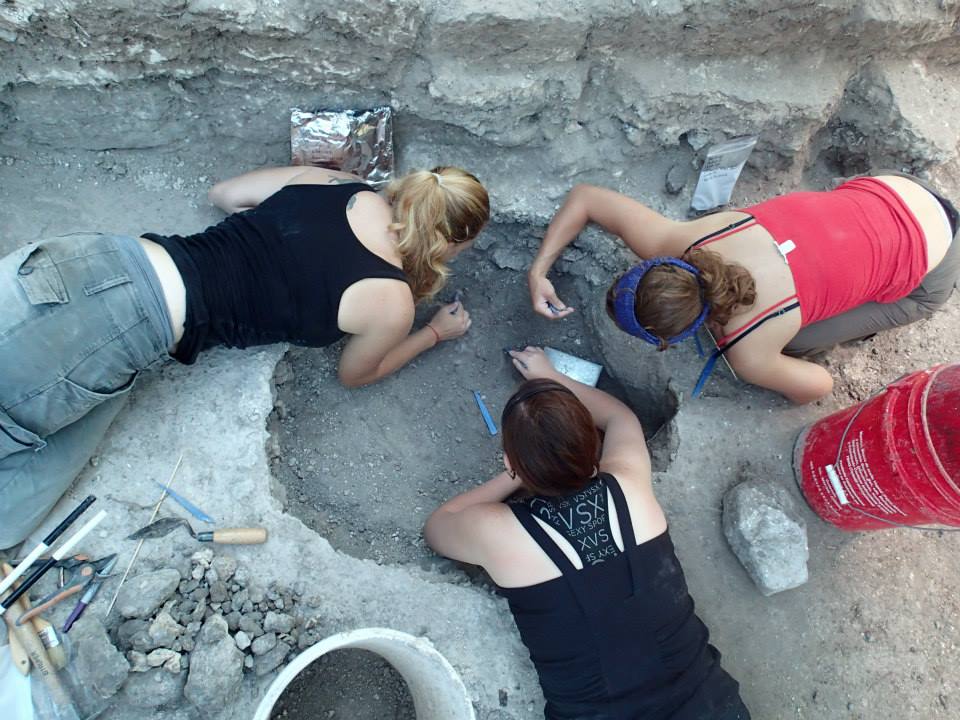 This is a continuation of Colleen answering your questions about archaeology!
This is a continuation of Colleen answering your questions about archaeology!
6. What kind of things have you found as a team? Is it true that archaeology is hard work and finds are rare and hard to come by?
The organization I work with (the Maya Research Program) has found literally millions of artifacts ranging from pottery and stone tools to human and animal remains to residential and ceremonial structures. However, we are studying very large sites from a very complex culture that built large permanent structures and cities (you can learn more about the Maya Research Program here. However, if we were to study, say hunters and gatherers (who don’t build permanent structures like the Maya do) – finding artifacts would be more difficult.
Archaeology is definitely hard work – but (depending on the site) artifacts can be fairly common and the work (wherever you are) is very challenging and rewarding.
7. I believe carbon dating is good for around 60,000 years back. Is there a sustainable method used to test the dates of materials older than 60,000 years?
You are absolutely correct! You can utilize a technique called Amino Acid racemization to test biological tissue samples (that contain amino acids) that are 100,000 years old (and sometimes older). You can learn more about this technique here.
There are techniques, such as Potassium - Argon Dating, which can date geological (not organic) samples from 5 million years ago (plus!) down to 100,000 years ago. There are also other techniques such as thermoluminescence, electron spin resonance, fission track, etc. You can learn more about these techniques here.

8. Why do you have to use paintbrushes when extracting artifacts?
Great question! Archaeologists utilize paintbrushes to excavate very delicate artifacts. Often artifacts degrade over time and if you are not very, very careful they will disintegrate if handled too roughly. Archaeologists also use paintbrushes to smooth the surface of the strata that we are working on so we can clearly see what we are uncovering.
All too often though – the popular press only show archaeologists working with paintbrushes….they don’t often show how hard we work with shovels and trowels to remove the meters (or more) of overburden that was on top of that special find!

9. I have always wanted to be an archaeologist!! is it true that you have to do three hours of math and writing for every hour of digging??
That is very true and an underestimate! Remember that archaeologist work very hard to record the provenience of each artifact in order to understand its context (you can read more about this here) and then spend a great deal of time reporting on what we find (which involves a lot of research).
If you excavate without recording the context – you’re looting (ie stealing the past)!!!
10. Any other advice?
If you are interested in archaeology – I strongly encourage you to contact your local archaeology or historical society, museum, or university and see how you can contribute to this amazing and fun science! Here is a list of organizations.






